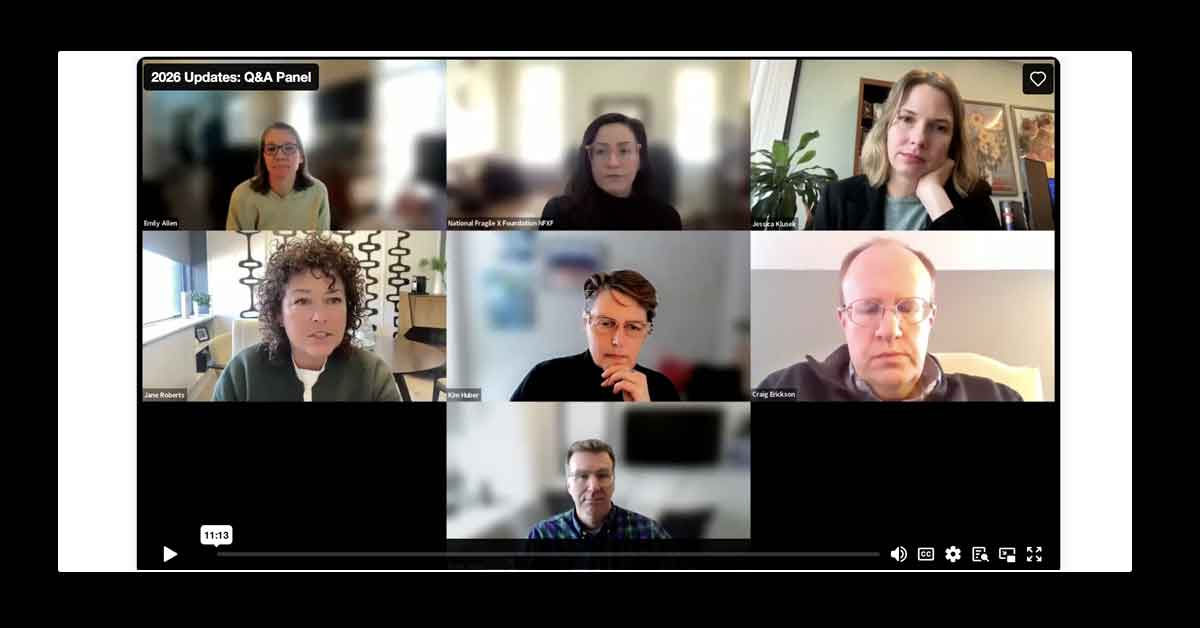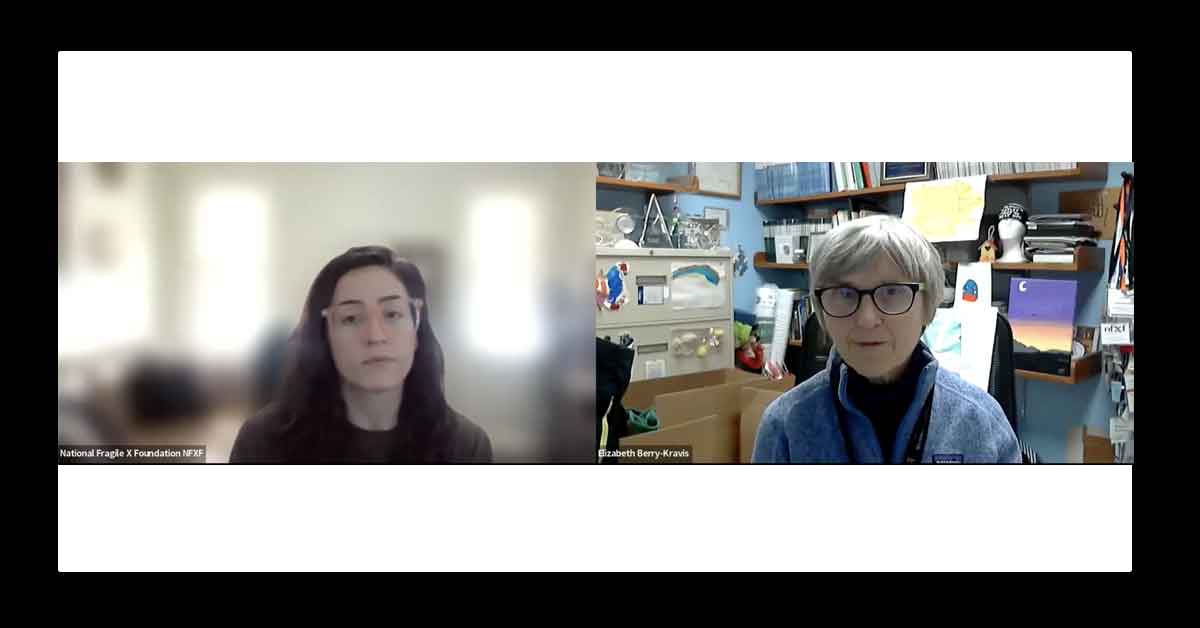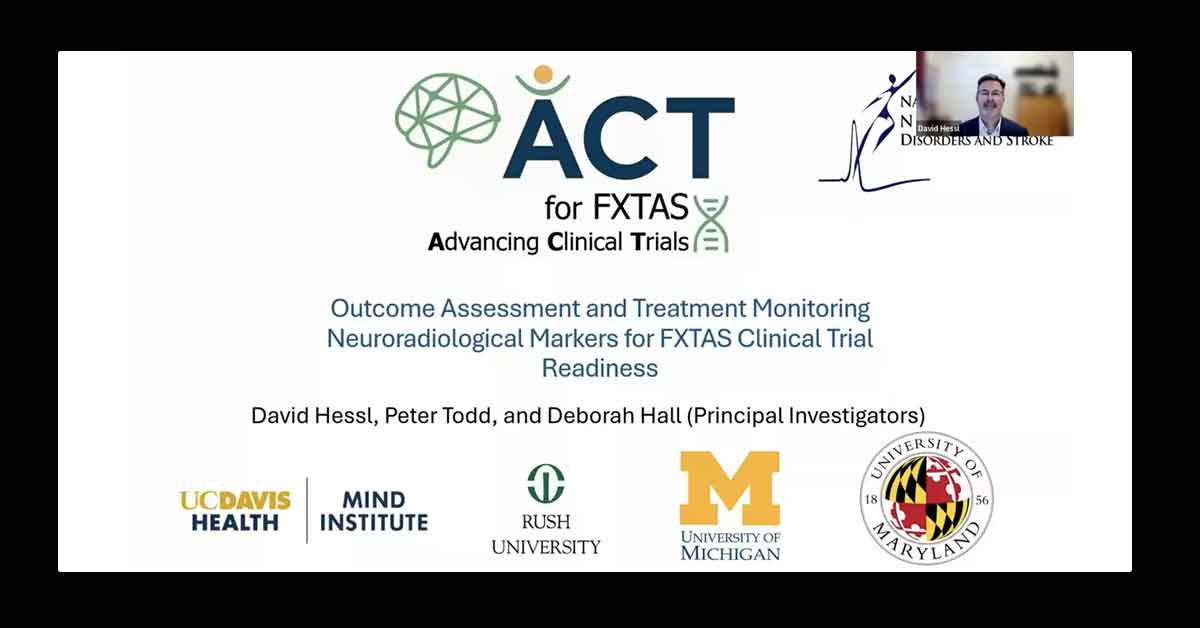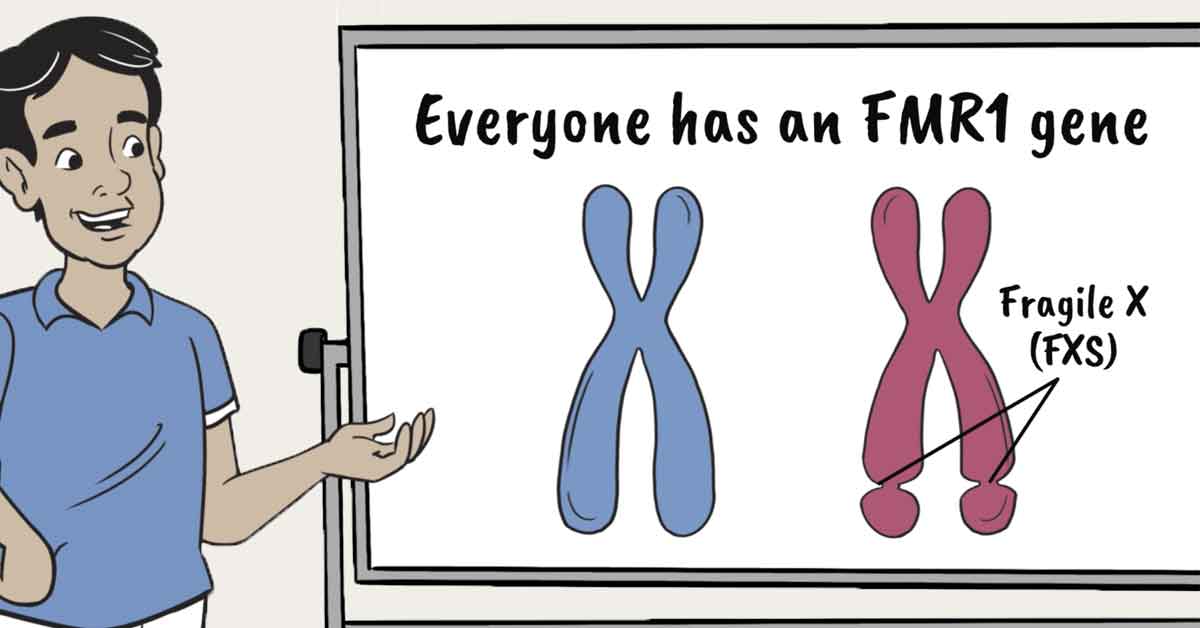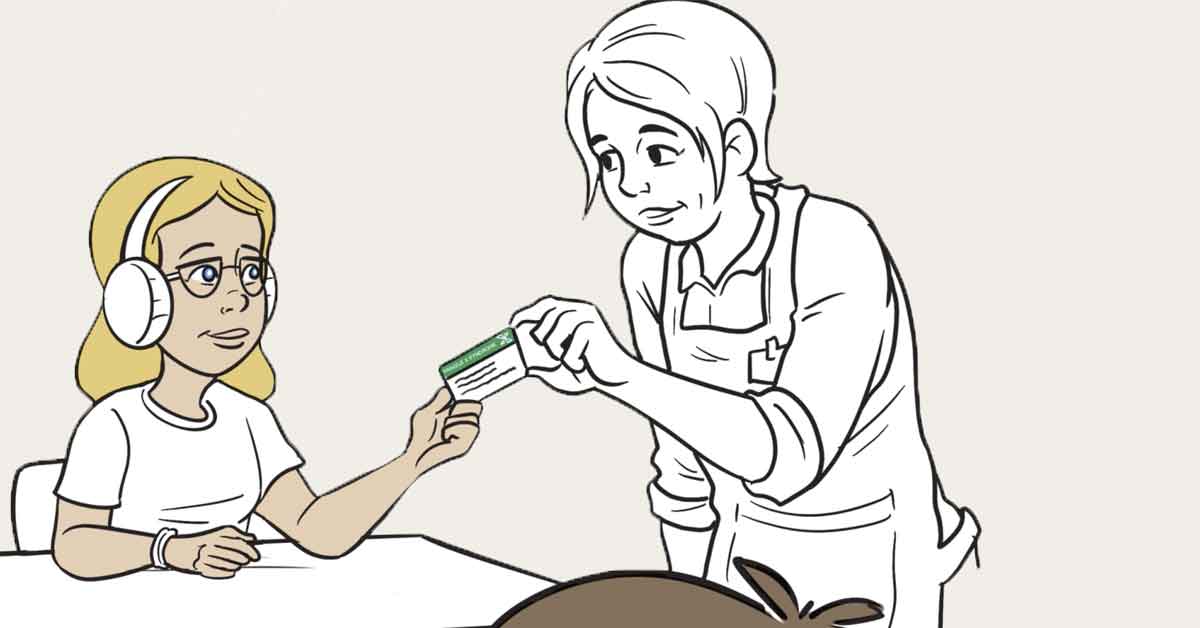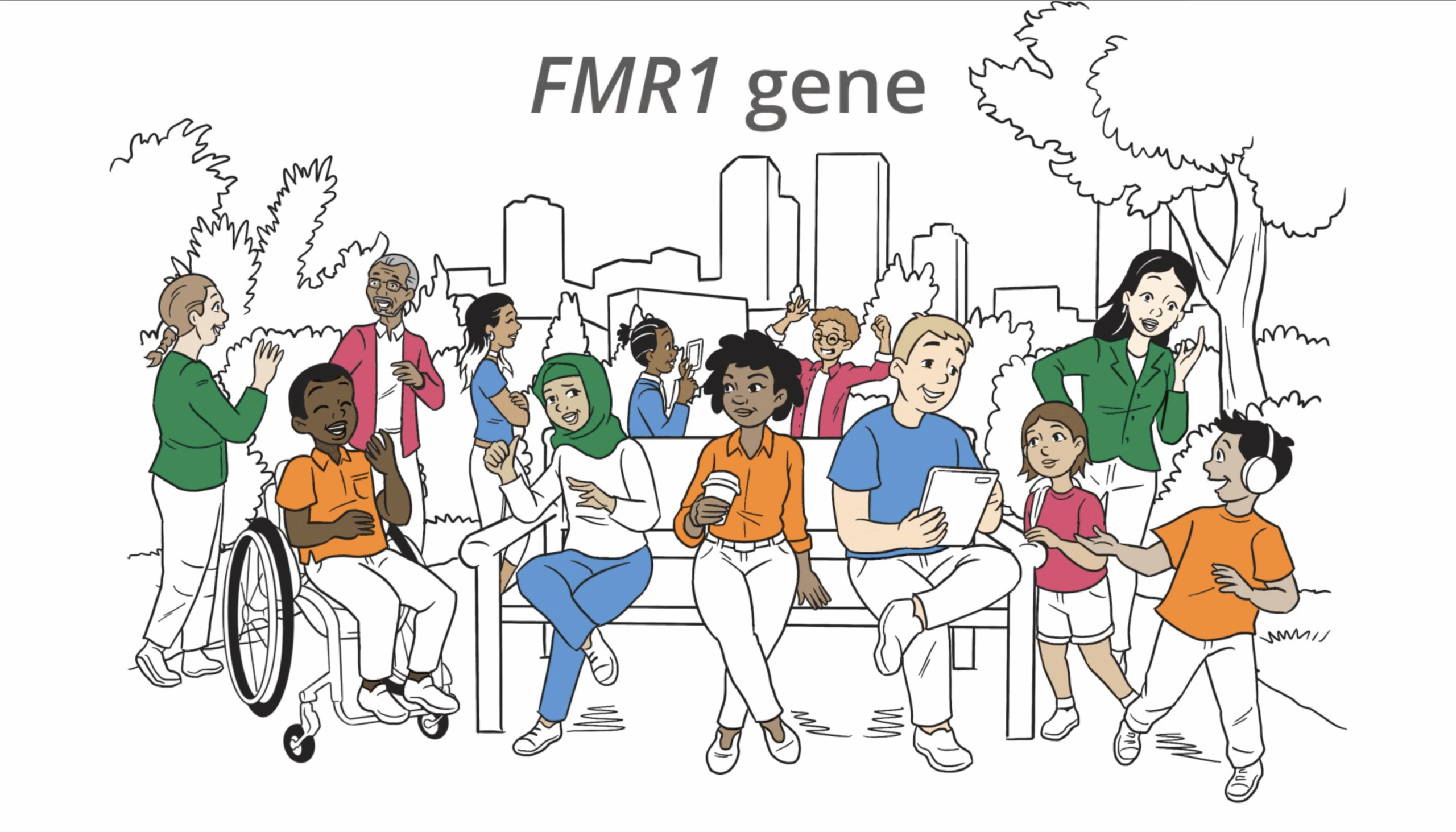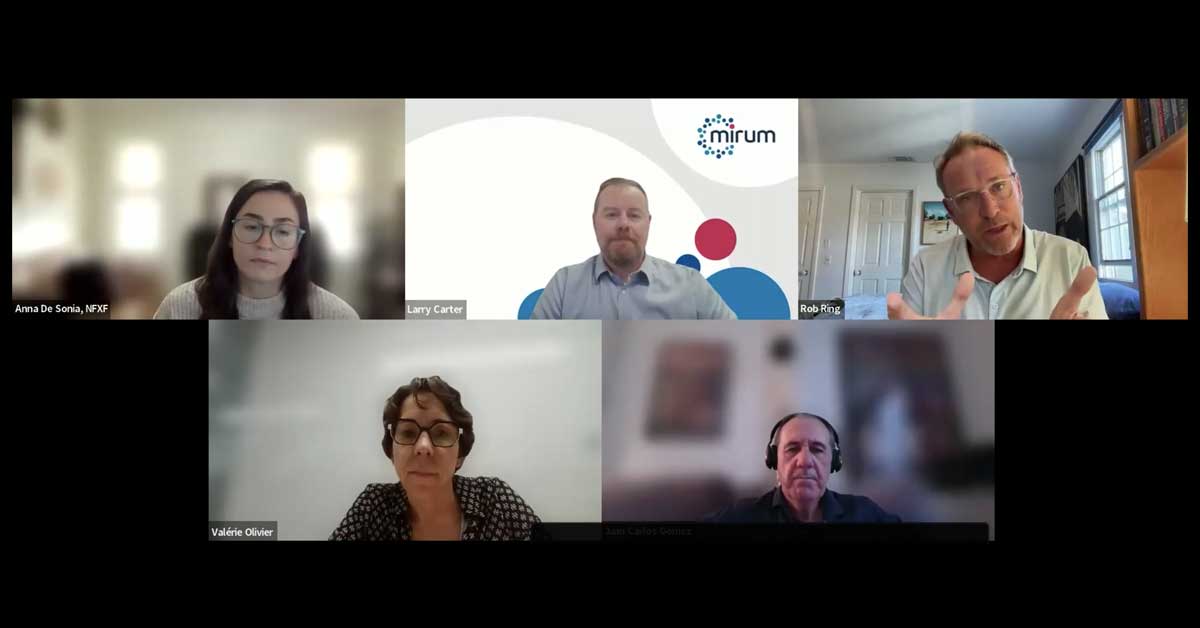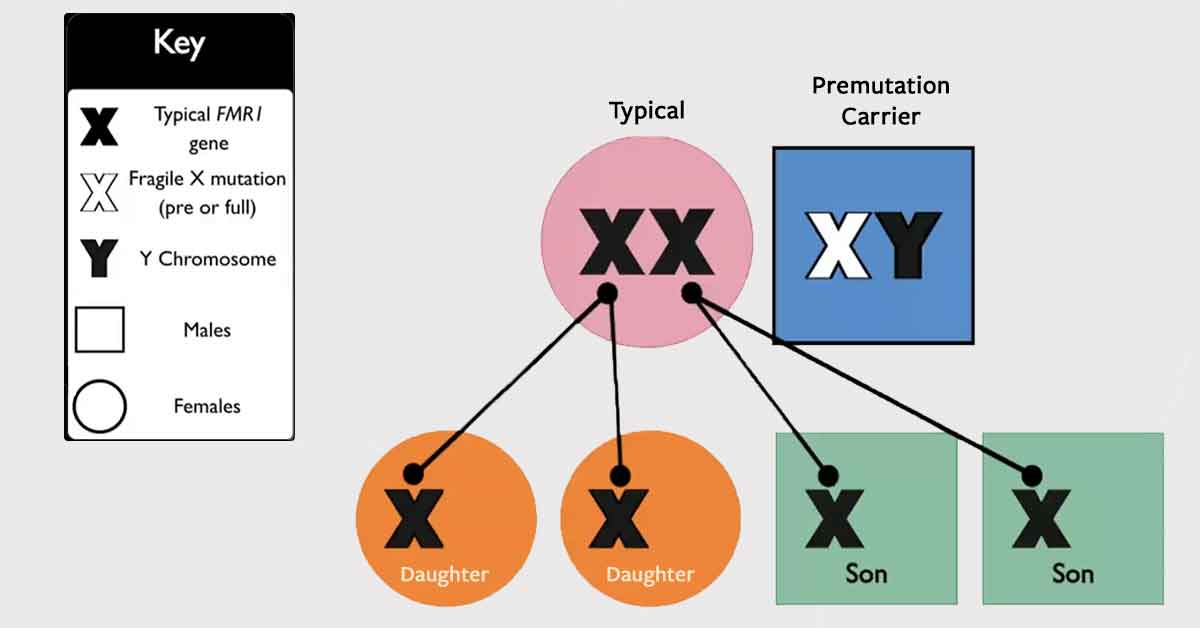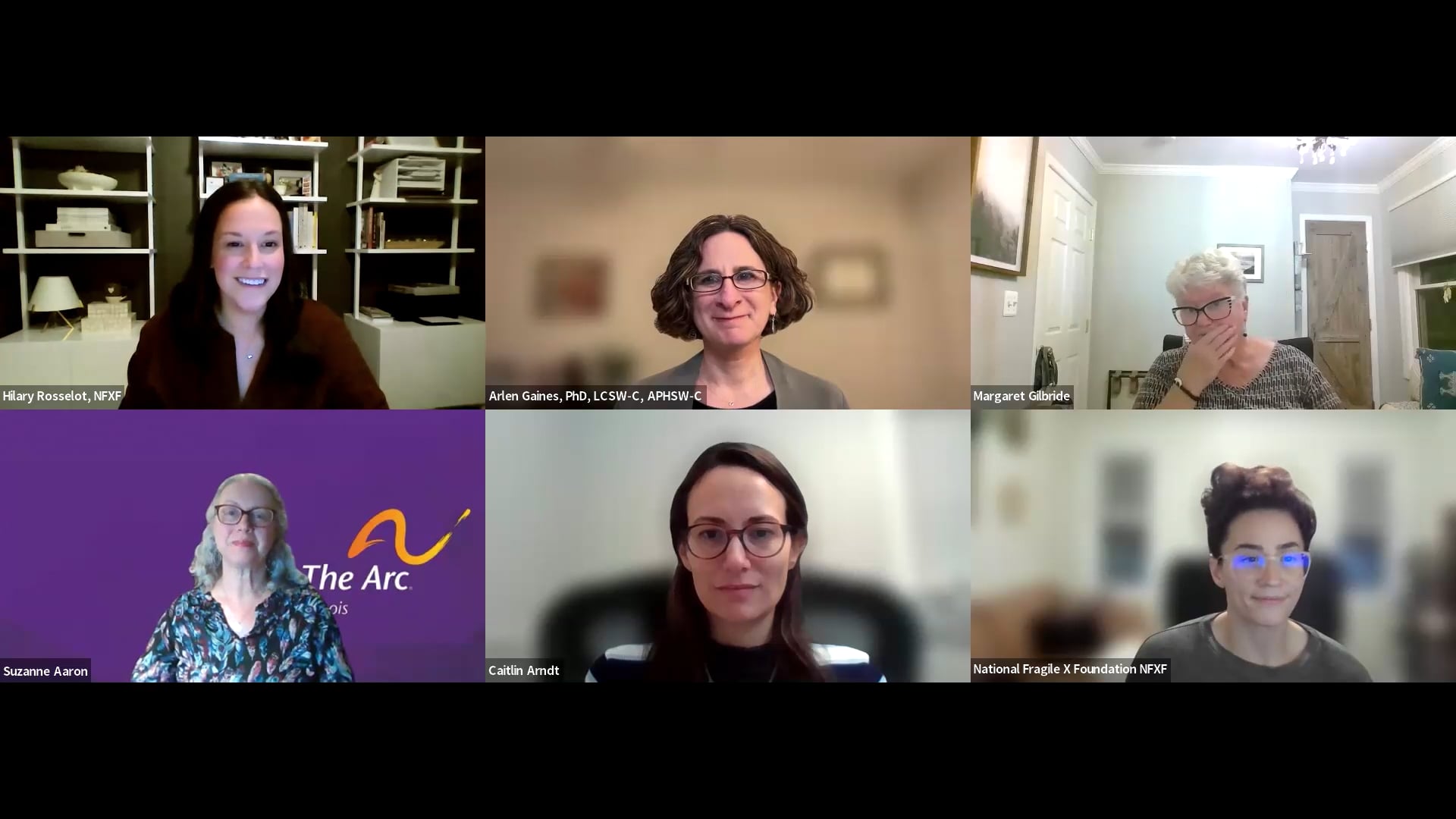Webinars & Videos
Featured
In the first webinar of NFXF’s 2026 Webinar Series, we hear updates from each of the current NIH-funded Fragile X Centers of Excellence. This funding remains critical to sustaining progress and advancing future discoveries.
Latest
The NFXF hosted an informative webinar featuring Dr. Elizabeth Berry-Kravis, who shared updates on the CDC-funded FORWARD-MARCH study and new insights into Fragile X syndrome and premutation health.
Dr. David Hessl joined the NFXF to discuss the exciting new ACT for FXTAS study, funded by the National Institute of Neurological Disorders and Stroke (NINDS).
All Webinars and Videos
In the first webinar of NFXF’s 2026 Webinar Series, we hear updates from each of the current NIH-funded Fragile X Centers of Excellence. This funding remains critical to sustaining progress and advancing future discoveries.
Dr. David Hessl joined the NFXF to discuss the exciting new ACT for FXTAS study, funded by the National Institute of Neurological Disorders and Stroke (NINDS).
The NFXF hosted an informative webinar featuring Dr. Elizabeth Berry-Kravis, who shared updates on the CDC-funded FORWARD-MARCH study and new insights into Fragile X syndrome and premutation health.
Designed to raise awareness and educate about Fragile X, we are excited to share this one-minute animated video from the perspective of a male self-advocate living with Fragile X.
Designed to raise awareness and educate about Fragile X, we are excited to share this one-minute animated video from the perspective of a female self-advocate living with Fragile X.
En este vídeo de 90 segundos, respondemos a la pregunta más frecuente: “¿Qué es el síndrome del cromosoma X frágil?”, explicando en qué consiste este síndrome, la premutación y las afecciones asociadas, así como la forma en que se hereda.
Descubre qué es la premutación del síndrome del cromosoma X frágil en tan solo 90 segundos. Este breve video animado de la Fundación Nacional del Síndrome del Cromosoma X Frágil explica cómo la premutación del cromosoma X frágil afecta a las personas y a las familias, y por qué es importante concienciar sobre este tema.
Four of our industry partners developing treatments for Fragile X syndrome — Shionogi, Mirum Pharma, Kaerus Bioscience, and Servier Pharmaceuticals — shared their latest research updates during a live webinar on October 28, 2025.
How Fragile X syndrome is inherited is a very common question and one of the first things a newly diagnosed family asks. Let’s be clear — Fragile X is an inherited condition.
Our expert panel — Suzanne Aaron, Caitlin Arndt, Arlen Gaines, and Margaret Gilbride — shared insights, strategies, and resources to help individuals with Fragile X syndrome and their families navigate grief and loss.



